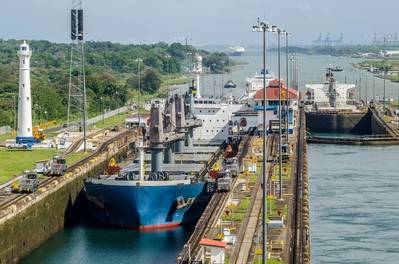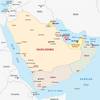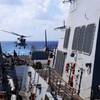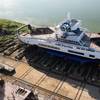Drought-hit Panama Canal Lets More Unbooked Ships Pass in bid to Ease Queue
The drought-hit Panama Canal has temporarily limited the number of new reserved passage slots to help ease a bottleneck of ships that are waiting to transit without reservations, the waterway's authority said on Thursday.
A logjam of commercial vessels seeking to pass through the canal, one of the world's busiest trade passages, has sent companies that typically use the waterway chasing alternative routes, according to executives and data.
Any delay or disruption can put shippers on edge. The Panama Canal reduces costs and transit times for many shippers, including major retailers and energy companies involved in trade between China and the U.S.
As of Aug. 10, there were 161 vessels near the canal, an increase from the about 90 ships typically seen during the rainy season, officials told Reuters. Refinitiv Eikon data showed at least 40 more ships approaching the passage.
The measure, disclosed to customers on Tuesday and that will remain in effect through Aug. 21, limits new reservations for passing through the canal's old locks, used by smaller vessels, to 14 per day, from 16 per day, making room for unbooked ships.
Booked transit through the largest locks will remain unaltered, it said in a statement.
"This particular adjustment has been introduced to alleviate congestion for ships already in queue to transit or en route, who were unable to secure reservations beforehand," it said in the release.
Panama also maintained a restriction of the total number of vessels allowed to pass to 32 per day, from 36 daily in normal conditions, and will continue limiting maximum draft to 44 feet, or 13.41 meters, through part of 2024.
NEW TERMS
Since the beginning of the year, the canal had instituted a number of depth restrictions as the drought, caused by the El Nino weather phenomenon, had put pressure on its water supplies.
The canal, however, in June postponed further restrictions that would have required ships to lighten their loads to more easily pass.
The waterway's chief Ricaurte Vasquez told Reuters last week the economic impact of the restrictions will be felt the hardest in the fiscal year beginning in October.
The measures Panama has been implementing aim at cut down on the about 51 million gallons of water needed for each crossings as its rainy season has been slow to give respite.
"The canal has experienced an extended dry season with high levels of evaporation, with a high probability of an El Nino condition before the end of this calendar year," the canal's authority said last month.
The bottleneck of vessels waiting to pass, however, has grown, prompting logistics and supply chain experts to predict more disruptions.
Some 70% of traffic through the canal originates from or is bound for the U.S., where major retailers like Walmart WMT.N, Amazon AMZN.O and Target TGT.N are gearing up for winter holiday sales.
U.S. liquefied natural gas exporter Cheniere Energy LNG.A has responded to the delays "by going around instead of through the canal, which obviously takes longer," Chief Commercial Officer Anatol Feygin said last week.
Still, the bottleneck will not fall as hard on shippers as pandemic-era mishaps, including the Suez Canal blockage in 2021, according to shipping firms and customers. COVID-era congestion has eased and supply chains healed due to weaker demand for ocean shipping.
Delays are having a material but "not huge" impact on global shipping, Rolf Habben Jansen, CEO of container shipping company Hapag-Lloyd HLAG.DE, said on an earnings call.
(Reuter - Reporting by Elida Moreno and Marianna Parraga. Additonal reporting by Lisa BaertleinEditing by Marguerita Choy)













